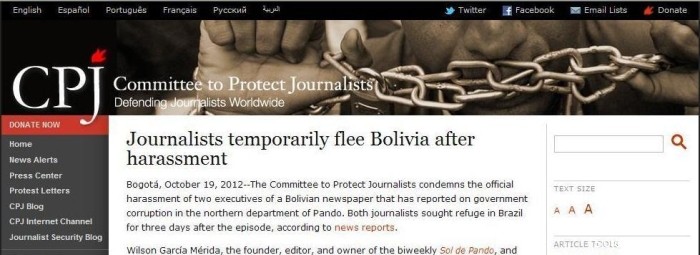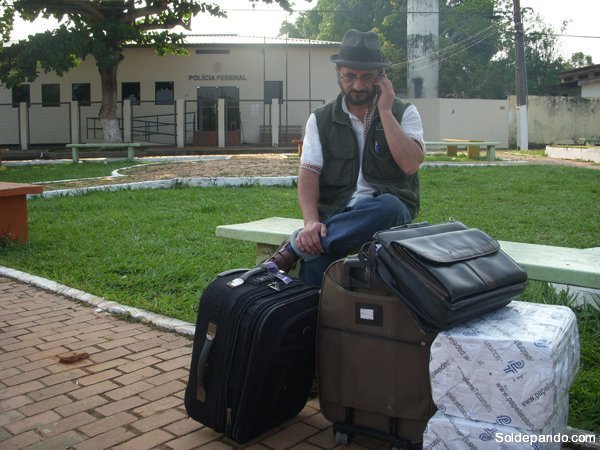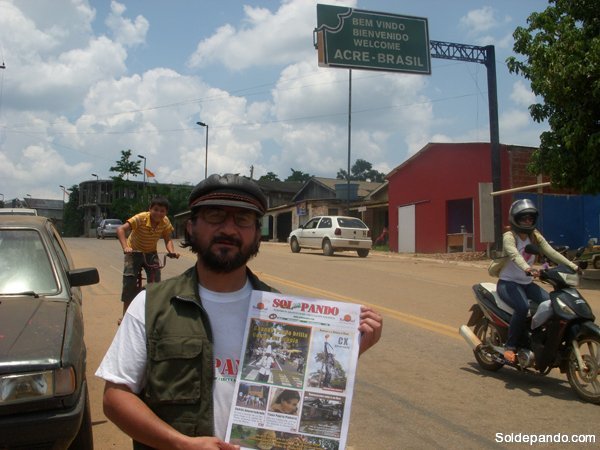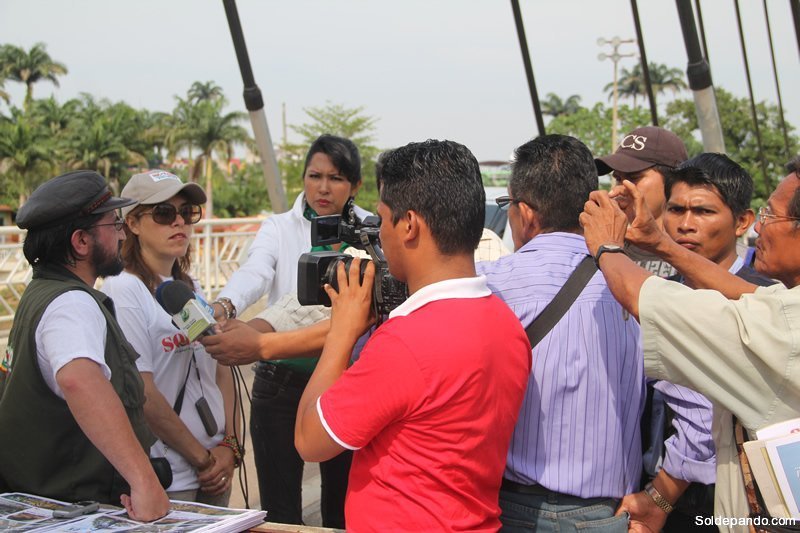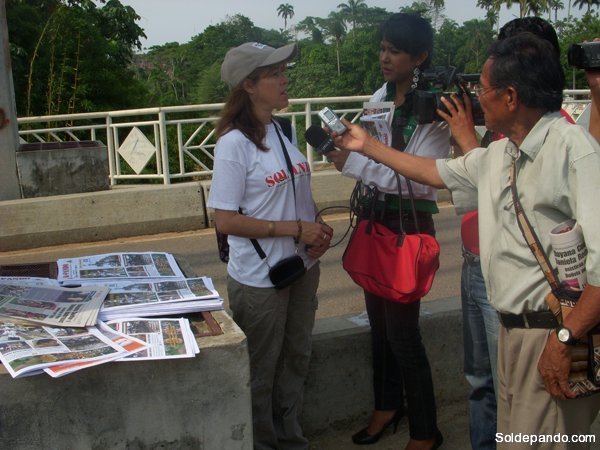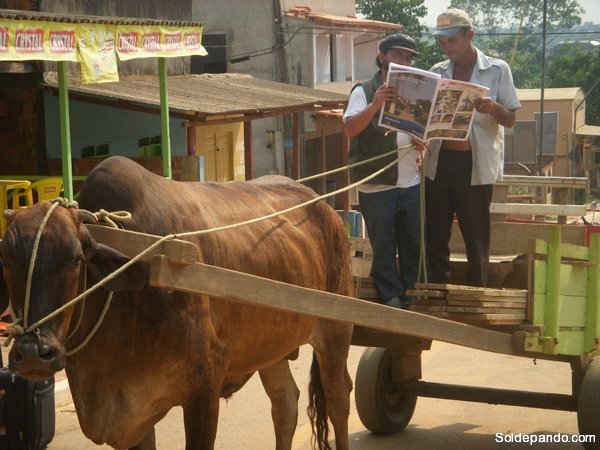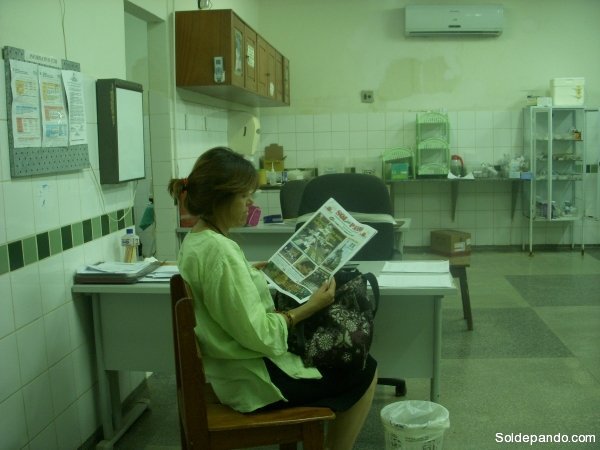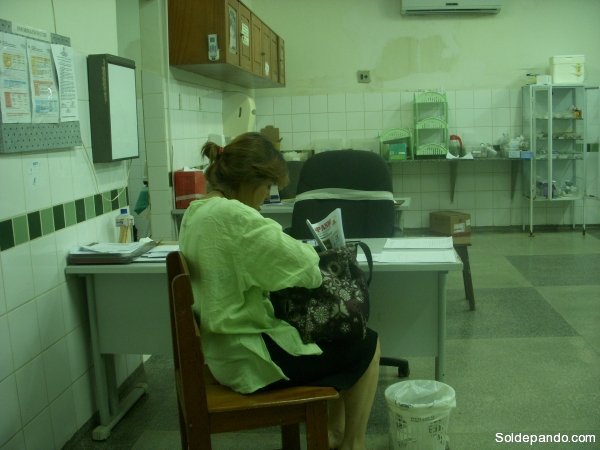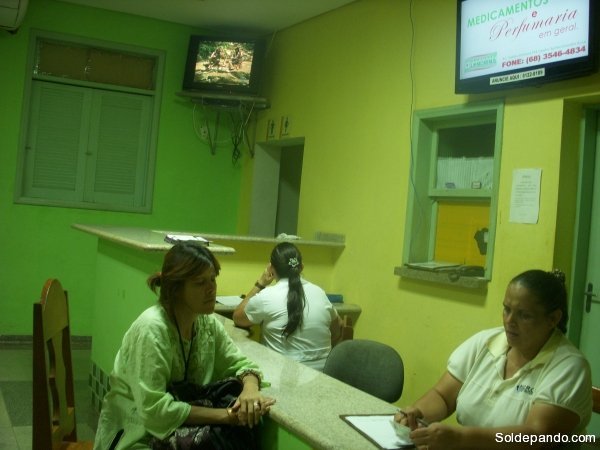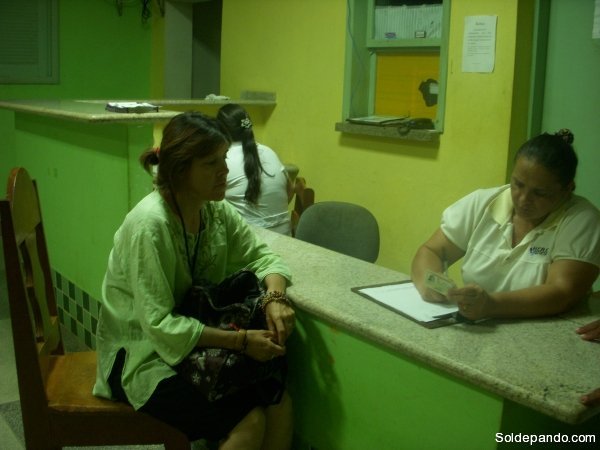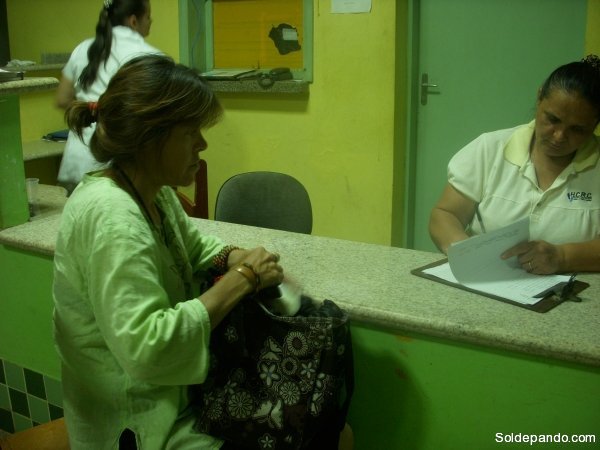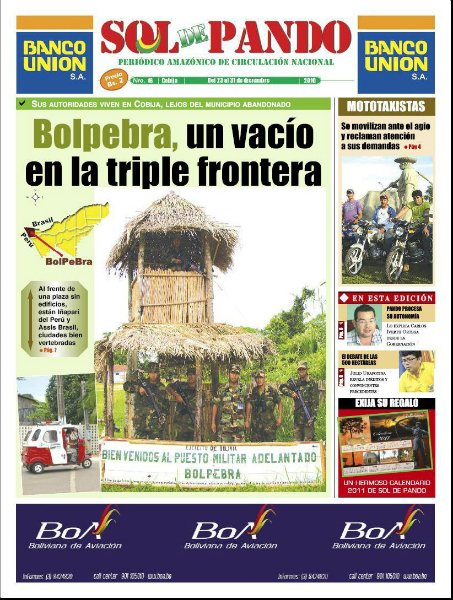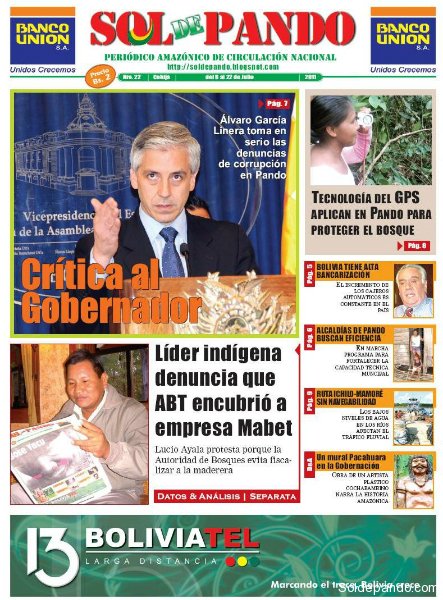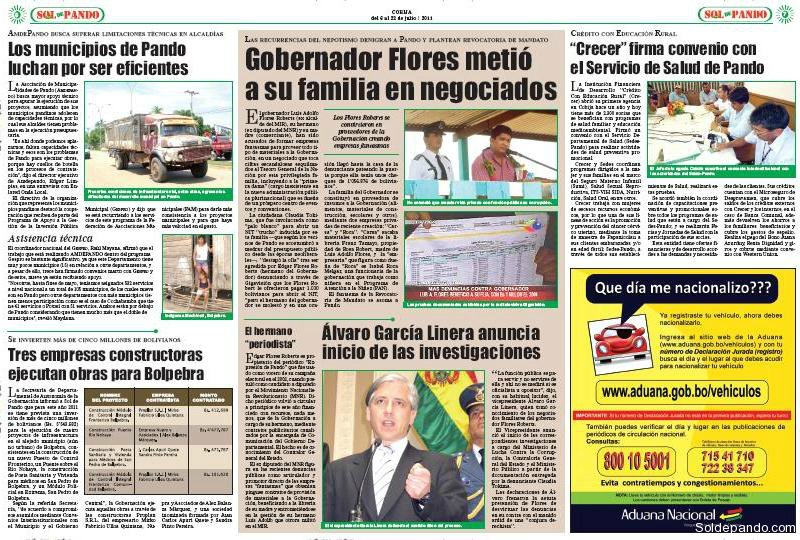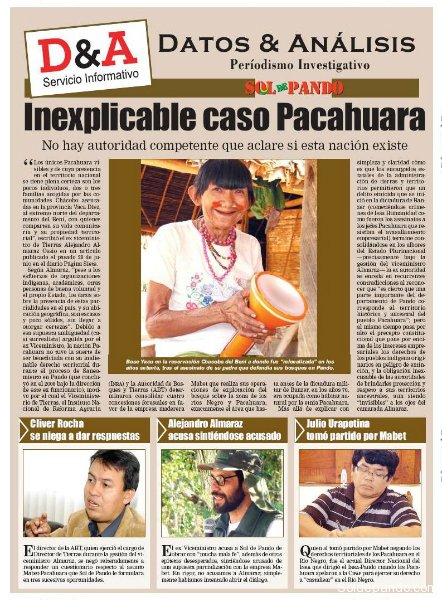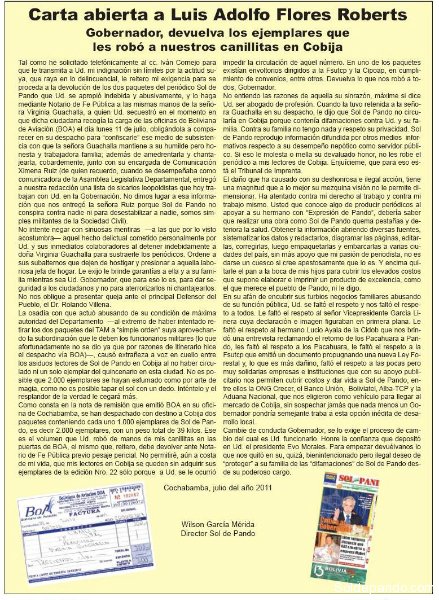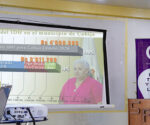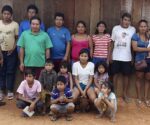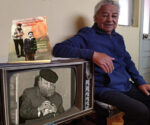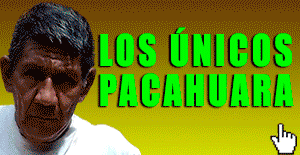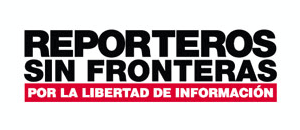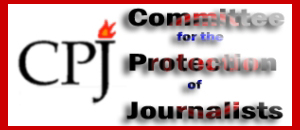The Committe to Protect Journalists claims against the proscription of Sol de Pando | Comité para la Protección de los Periodistas reclama por la proscripción de Sol de Pando
© Bogotá, October 19, 2012 The Committee to Protect Journalists (CPJ) condemns the official harassment of two executives of a Bolivian newspaper that has reported on government corruption in the northern department of Pando. Both journalists sought refuge in Brazil for three days after the episode, according to news reports.«Authorities in Pando department should halt the harassment immediately and allow the paper to circulate freely», Carlos Lauría, CPJ’s senior program coordinator for the Americas, said from New York.
Las autoridades del departamento de Pando deben poner freno al hostigamiento contra el periódico de forma inmediata y permitir que circule libremente», reclamó desde Nueva York Carlos Lauría, coordinador senior del programa de las Américas del CPJ…
© Bogotá, 19 de octubre de 2012 El Comité para la Protección de los Periodistas (CPJ, por sus siglas en inglés) condena el acoso oficial de dos ejecutivos de un diario boliviano que informó sobre corrupción oficial en el departamento norteño de Pando. Ambos periodistas buscaron refugio en Brasil por tres días luego del episodio, según informes de prensa.
Wilson García Mérida, the founder, editor, and owner of the biweekly Sol de Pando, and his general manager, Silvia Antelo, fled the department capital of Cobija on October 13 and stayed in the adjacent Brazilian border town of Brasilea after they were harassed twice by investigators who said they were from the police and prosecutor’s office, according to news reports and Franz Chávez, coordinator for the La Paz-based Bolivian Press Association. The journalists said they fled the country because they feared arrest, Chávez told CPJ.
Wilson García Mérida, fundador, editor y dueño del bisemanario Sol de Pando, y su manager general, Silvia Antelo, abandonaron la capital del departamento de Cobija el 13 de octubre y permanecieron en la ciudad fronteriza brasileña de Brasilea tras ser acosados en dos ocasiones por funcionarios quienes afirmaron ser representantes de la policía y la fiscalía general, según informes de prensa y Franz Chávez, coordinador de la Asociación Nacional de la Prensa. Los periodistas afirmaron haber abandonado el país porque temían ser arrestados, indicó Chávez al CPJ.
The journalists were in Cobija to distribute the latest edition of Sol de Pando, which covers government, the indigenous population, and social affairs in the department of Pando. Investigators began to follow them and photograph them, and later that day, arrived at their hotel in Cobija with an order to leave, García told reporters on Sunday.
Los periodistas estaban en Cobija para distribuir la edición de Sol de Pando, que cubre gobierno, la población indígena, y temas sociales en el departamento de Pando. Las autoridades comenzaron a seguirlos y a fotografiarlos y luego llegaron al hotel donde se alojaban los periodistas en Cobija con una orden de detención, García indicó a los periodistas el domingo.
Pedro Melgar, the secretary of legal affairs for the Pando government, told CPJ that there had been no effort by local authorities to harass them or prevent the distribution of the paper.
Pedro Melgar, secretario de asuntos legal del gobierno de Pando, indicó al CPJ que no había ningún intento de las autoridades locales para acosar a los periodistas o prevenirlos de que distribuyeron el periódico.
Antelo told CPJ that she left Brazil on Tuesday and flew to the Bolivian capital of La Paz and that García had returned to his home in Cochabamba. She said they both intended to remain in Bolivia and to continue publishing Sol de Pando but that they feared further government harassment.
Antelo indicó al CPJ que había abandonado Brasil el martes, viajado a la ciudad capital de La Paz y que García había regresado a su hogar en Cochabamba. La periodista afirmó que ambos tenían la intención de permanecer en Bolivia y continuar publicando Sol de Pando pero que temían más acoso gubernamental.
Sol de Pando has reported on government corruption in the past, and both the paper and its editor, García, have been targeted by Bolivian officials. Richard Flores, a former congressman and a brother of Pando Gov. Luis Adolfo Flores, has sued García for defamation in connection with reports in Sol de Pando that alleged he improperly received work contracts from the government, Melgar told CPJ. Flores denied the allegations. García claimed that in June 2011, the governor had ordered the confiscation of about 2,000 copies of Sol de Pando that included stories about government corruption. A government official denied the accusation.
Sol de Pando ha informado sobre corrupción gubernamental en el pasado, y tanto el diario como su editor García han sido blanco de acoso por parte de funcionarios bolivianos. Richard Flores, ex congresista y hermano del gobernador de Pando Luis Adolfo Flores, ha demandado a García por difamación en relación con sus informes en Sol de Pando que alegaron haber recibido contratos irregulares del gobierno, Melgar informó al CPJ. Flores negó las acusaciones. García indicó que en junio de 2011 el gobernador había ordenado la confiscación de unas dos mil copias1as de Sol de Pando que incluían artículos sobre corrupción gubernamental. Un funcionario del gobierno negó la acusación.
«The management of Sol de Pando should not face intimidation because of the paper’s coverage of sensitive issues,» Carlos Lauría, CPJ’s senior program coordinator for the Americas, said from New York. «Authorities in Pando department should halt the harassment immediately and allow the paper to circulate freely».
«Los ejecutivos de Sol de Pando no deben ser intimidados por la cobertura del periódico sobre temas sensibles», afirmó Carlos Lauría, coordinador senior del programa de las Américas del CPJ. «Las autoridades del departamento de Pando deben poner freno al hostigamiento contra el periódico de forma inmediata y permitir que circule libremente».
Bolivian government officials and critical media outlets have clashed before. In August, authorities filed a criminal complaint filed against three media outlets and accused them of inciting racism and discrimination in connection with their coverage of a speech by President Evo Morales.
Funcionarios del gobierno boliviano y medios críticos se han enfrentado anteriormente. En agosto, las autoridades presentaron una demanda penal contra tres medios y los acusaron de incitar al racismo y a la discriminación por su cobertura sobre un discurso del Presidente Evo Morales.
TRADUCCIÓN DE ESTE INFORME EN PORTUGUÉS
LINKS RELACIONADOS
- International repudiation of the systematic proscription of a Bolivian newspaper
- La Aplp lideriza una defensa urgente de la conculcada Libertad de Prensa en Bolivia
- ENTREVISTA A GARCÍA MÉRIDA EN EL DEBER DE SANTA CRUZ | «Sol de Pando se vende en el Brasil»
- Carta de Reporteros sin Fronteras exigiendo Libertad de Prensa a la ministra Dávila
- La Gerente de Sol de Pando fue evacuada de Brasilèia a La Paz con grave cuadro de anemia
- Jornalista boliviano vende jornais em lado brasileiro de ponte para não ser preso em Cobija
- Sol de Pando renueva su edición impresa ratificando su Autonomía Informativa
- EDITORIAL | Nuestra Autonomìa Informativa
- Nuestra integridad en serio riesgo
- Quintana y Flores Roberts confabularon en Cobija para la incautación de Sol de Pando
- Quintana promueve el “exilio dorado” de Llorenti para encubrir autorías de Chaparina
- Con el interinato de Maldonado, Quintana toma control directo de la Policía
- EBO y EBA bajo sospechas de corrupción, las investiga el senador Manuel Limachi
OTROS LINKS RELACIONADOS EN EL BLOG DE SOL DE PANDO
- El Defensor del Pueblo encubre los atentados de Quintana contra Sol de Pando
- Ministro de la Presidencia oculta información sobre concesiones auríferas a brasileños
- Cierran ingreso de Quintana a las comunidades indígenas
- Nuestra integridad en serio riesgo | SUB-EDITORIAL
- EDITORIAL | Sucio operativo mediático fallido
- EDITORIAL | Cuidar la imagen presidencial
- Un derechista que nos dice derechistas | SUB-EDITORIAL
- Es hora de que el presidente Evo Morales depure todos los infiltrados de su entorno | SUBEDITORIAL
- Aclaraciones necesarias sobre la “confiscación” de Sol de Pando
- ¿Llegaron sus ejemplares a la Fsutcp?
- Gobernador Flores “confiscó” edición Nro. 22 de Sol de Pando
- Flores atenta contra el derecho laboral de nuestros voceadores
- Carta abierta a Luís Adolfo Flores Roberts
- Wilson García Mérida aclara a los lectores de Sol de Pando
- El dirigente de los periodistas de Pando trabaja para la familia del Gobernador
- CARTA A LA Cstpb | Ante los ataques violentos del hermano del Gobernador: Tribunal de Imprenta
- El espantoso caso del nuevo director de Ademaf en Pando | SUB-EDITORIAL
- EDITORIAL | Pacahuara: Nación sin Territorio










